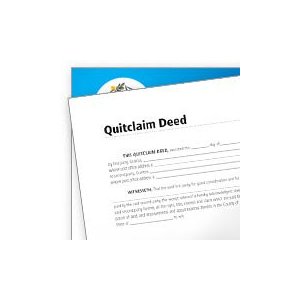 In Michigan, there are three general types of deeds that are used in real estate transactions: quit claim, covenant, and warranty. Each of these deeds has a different legal impact. Sellers and buyers of real estate should fully understand the impact of the deed they are asked to sign, or accept.
In Michigan, there are three general types of deeds that are used in real estate transactions: quit claim, covenant, and warranty. Each of these deeds has a different legal impact. Sellers and buyers of real estate should fully understand the impact of the deed they are asked to sign, or accept.
The deed with the least protection for the buyer, and conversely the least risk for the seller, is the quit claim deed. When conveying property using a quit claim deed, the seller is merely stating that the seller conveys to the buyer its interest, if any, to the property. There is no warranty of title given in this type of deed.
The second type of deed generally used in Michigan is a covenant deed. (This type of deed is sometimes referred to as a C-deed or a Special Warranty Deed.) When conveying property through a covenant deed, the seller says to the purchaser that it conveys its interest in the subject property to the buyer, and that seller will warrant that during the period of the seller’s ownership, the seller has not done anything to impair the title to the property, except as specifically stated in the deed as an exception.
Finally, in a warranty deed, the seller warrants title to the buyer without exception, except as stated. The warranty of title runs from the beginning of time through the date of the property’s sale. While warranty deeds are the type of deed most commonly used in Michigan real estate transactions, these deeds present the most risk to a seller, because of the breadth of the warranty of title included in the deed. Conversely, of course, this deed presents the most comfort to a buyer.
When selling property, and conveying title through a covenant deed or a warranty deed, it is highly advisable to obtain title search to ensure that there are no impairments to the title that you are warranting.
Before entering into any real estate transaction, is always advisable to consult with a knowledgeable real estate attorney. To consult with of the Demorest Law Firm, please click here.




I am new to this arena, so I had to look up the term Quit Claim Deed. For anyone that is interested, I found a good definition here https://realestatemetro.com/real-estate-terms/quit-claim-deed
How much it cost to get a Quick claim deed . And where are your company located at.
Hello, I have a question on a quit claim deed as I am considering purchasing a lot in Detroit for an investment. I think I understand the risks, but once I purchase the parcel with this deed – can I then convert it to a warranty deed at some point to ensure full ownership with no issues from prior owners or liens? Thanks, RIchard